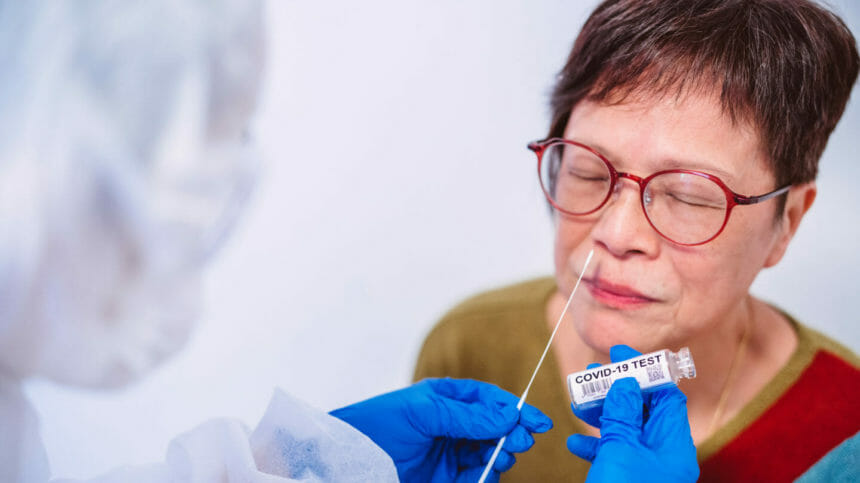
States that harbor doubts about antigen test accuracy may create a disincentive for nursing homes to use the point-of-care tests they were sent by the federal government to help contain out-of-control COVID-19 infection rates, a new study finds.
A disconnect between federal and state or local policies directly affects POC antigen test use in these settings, according to a comprehensive report released Thursday by the U.S. Government Accountability Office.
“For example, some states do not collect POC antigen test data to meet state and federal testing requirements because the states question the accuracy of the test results,” the congressional agency wrote. “In these states, according to the officials and stakeholder we interviewed, nursing homes are unlikely to use the POC tests.”
The latest data for the week ending Dec. 6 showed that although 87% of nursing homes reported having a POC system in-house, fully 28% said they had not used it to test residents or staff in the prior week, according to the GAO. The findings indicate that many facilities continue to rely on slower molecular testing, the authors conclude.
On the flip side, nursing homes in states that supported early adoption of POC tests in nursing homes appear to use antigen tests more regularly. In one example, an unnamed state that mandated weekly testing of all nursing home staff early on and provided extensive help in using the testing systems had relatively less trouble overcoming challenges related to testing and reporting data, the agency wrote.




